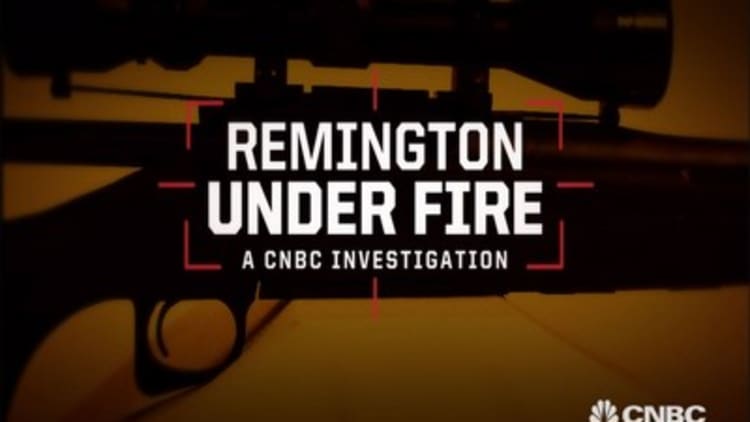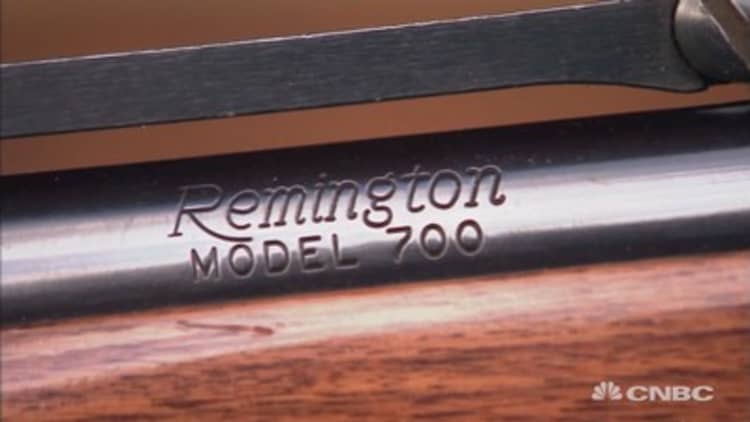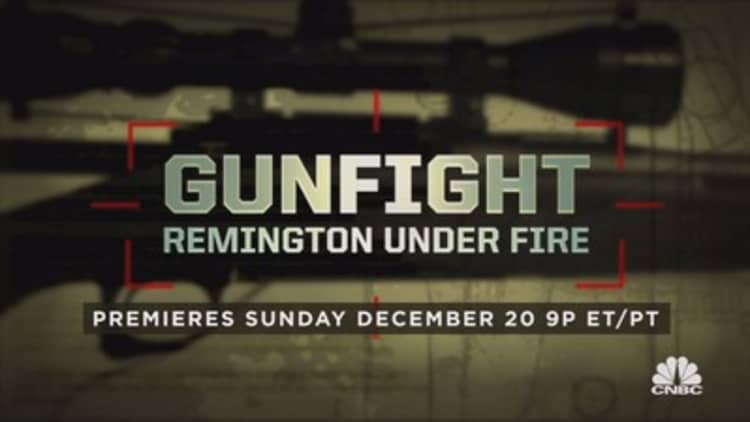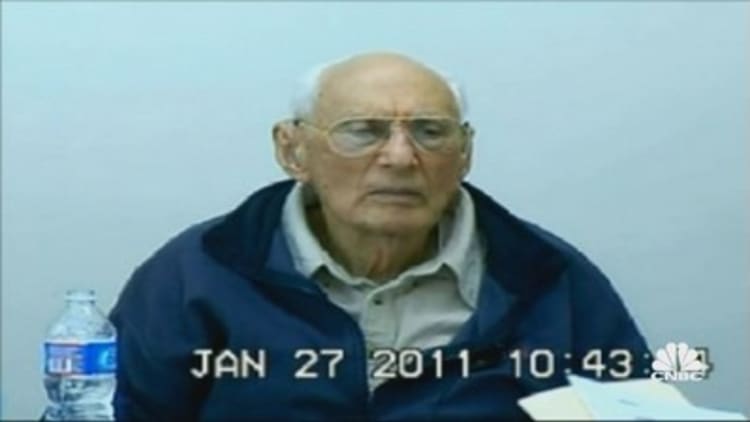



The Remington Arms Company, America's oldest gun maker, said it would use social media and talk-radio to help publicize its offer to replace the triggers in millions of allegedly defective rifles exposed in a 2010 CNBC documentary.
The company has hired a former Obama campaign manager to help get the word out. But Remington continued to deny the guns were defective.
The new plan, six months in the making, adds a Facebook campaign as well as 60-second advertisements on popular talk radio programs hosted by Rush Limbaugh and Sean Hannity.
Remington also said it had hired Jim Messina, former Deputy White House Chief of Staff and a campaign manager for Barack Obama's 2012 presidential campaign, to oversee the public awareness program.
"The Plan centers on a state-of-the-art, pre-tested social media campaign developed by an internationally recognized expert in the design and administration of political and commercial advertising campaigns," Remington and class action plaintiffs' attorneys said in a joint filing late Friday night.
The previous plan employed only print ads in national magazines and a direct mail campaign.

It was the latest development in a nationwide proposed class action settlement involving Remington's popular Model 700 bolt-action rifle and a dozen other Remington firearms with similar designs.
Multiple lawsuits have alleged a decades-long cover-up by the company of an alleged design defect that allowed the guns to fire without the trigger being pulled. As CNBC reported in the 2010 investigation "Remington Under Fire," the lawsuits linked the trigger design to dozens of deaths and hundreds of serious injuries.
Remington has contended the guns were safe, and blamed all the accidents on user error. But in 2014, after decades of fighting the lawsuits, the company agreed to replace the triggers free of charge on millions of guns. The company said it wanted to put the allegations behind it, and avoid more costly litigation.
The agreement covers some 7.5 million guns, including Remington models 700, Seven, Sportsman 78, 673, 710, 715, 770, 600, 660, XP-100, 721, 722, and 725, produced since 1948.
The trigger replacement plan was scheduled for final approval in late 2015. But in December, the federal judge overseeing the class action case, Ortrie D. Smith in Kansas City, Missouri, ordered the company and plaintiffs' lawyers to come up with a better plan to notify the public about the settlement.
The order came just hours after a CNBC report exposed thousands more documents that detailed what Remington knew about the guns' alleged defect.
"The Court cannot conceive that an owner of an allegedly defective firearm would not seek the remedy being provided," Judge Smith wrote on December 8.

Whether the new plan will pass muster with the judge — or critics who have filed formal objections to the initial agreement — remained to be seen.
The deal would allow Remington to continue to deny any defect in the guns, although some of the language in Friday's agreement appeared to have been toned down from prior versions of the settlement.
Judge Smith and others have also questioned a provision in the deal in which owners of some of the older Remington models would receive product vouchers worth $10 or $12.50 instead of a trigger replacement, because Remington claimed the guns were too old to be retrofitted.
At a February 2015 hearing, Smith asked why Remington would not simply buy the guns back. But the voucher program remained a part of the settlement in Friday's amended plan.
Among the models eligible only for a voucher was the Model 600, even though the company instituted a recall for the guns in 1979 that remained in effect today.
The joint filing, which said the parties worked "diligently" to develop the new plan, asked the judge to schedule a hearing to clear the way for final approval.


